Search Results
Search
Filter results
Advanced Filters
Your search returned 562 Solutions
-

Alternative communication platform for people with learning difficulties
The Livox app enables users with speaking or learning difficulties to communicate using virtual cards with pictures or illustrated short phrases. The app can be operated noth by blinking and by speech. The app is self-learning and also features a content creator to add communication cards with videos, pictures and music.
Livox, Livox, Brazil -
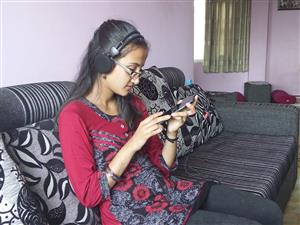
Accessible books for vision-impaired students using Android technology
As part of ELECTS (Enhancing Learning Capabilities of Students with Print and Visual Disabilities) ADRAD has adopted the playback function of Android devices and produced an orientation toolkit for easy usage. The aim is to enable students with visual impairments in Nepal to use free digital books based on DAISY and Epub.
Action on Disability Rights And Development-Nepal, Nepal -
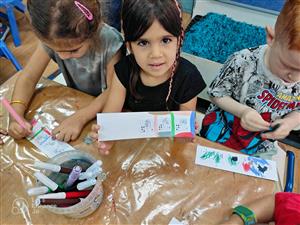
Training curricula and staff support to make mainstream kindergartens more disability inclusive
Krembo Wings, Israel: Youth movement supporting persons with disabilities. Developed training for educational teams in kindergartens, promoting inclusive discourse. Curriculum in Hebrew and Arabic expanded from four to twelve kindergartens between 2022 and 2023.
Krembo Kindergarten, Israel -
Multiple tailored solutions offer physical and financial independence
In the Alhassan Foundation more than 50 percent of the board members and 80 percent of the employees are wheelchair users. The Foundation aims for wheelchair users in Egypt to reach higher levels of inclusion and independance in all aspects of life, including education, employment, and sports.
Alhassan Foundation, Egypt -
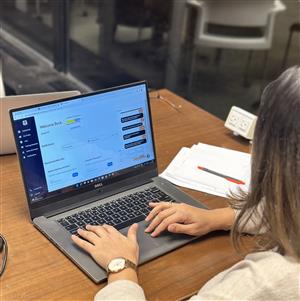
An online accessible skills-driven job platform
Jobs Ability’, launched in 2018, is a development of the US non-profit Our Ability, in cooperation with Syracuse University and Microsoft. The Artificial Intelligence-driven job matching service uses algorithms that focus on the skills and abilities of persons with disabilities, rather than on what they do not have.
Our Ability - Access to Opportunity, Jobs Ability, United States of America -
English skills for persons with learning difficulties
The GNW-SupEFL online portal assists persons with specific learning difficulties in acquiring critical language skills in English. People with learning disabilities from six countries and EFL language teachers contribute to the design of the courses. The portal is available free of charge to people with special learning difficulties.
GNW - Gauges North West, Hungary -

Home-based children using a robot in classroom to learn and socialize
Berater Unternehmensberatungs GmbH from Austria has been offering education with the help of physical robots, so-called avatars, since 2020. Targeting children who cannot go to school, the avatars are usually placed in the classroom and can be personalized.
die Berater counsulting, Interaction avatar, Austria -
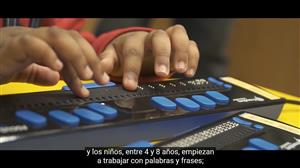
A tool to teach blind children how to read and write by using Braille
Braitico teaches children the use of Braille in a fun and simple way. Therefore it uses an accessible app along with a combination of learning tools, such as stories and games. The programme uses a step-by-step approach right from infancy up to 12 years. Between 2017 and 2019, 106 children have used Braitico.
ONCE Foundation, Braitico (Braille learning tool), Spain -
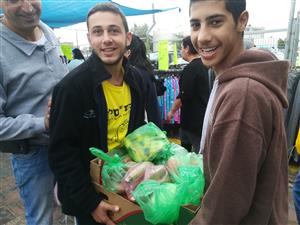
Providing Meaningful Volunteer Work for Students with Disabilities
"Volunteering for a Change" arranges trainings and provides briefings on how to manage volunteers with disabilities. The partners develop relevant roles for youth with special needs so that volunteers can have meaningful placements. By 2018, Volunteering for a Change had trained some 200 students and 500 professionals.
JDC Israel - Israel Unlimited, Volunteering for a Change, Israel -

University inclusion programme for persons with intellectual disabilities
"Uni 2 beyond" enables individuals with intellectual disabilities to attend lectures and tutorials at the University of Sydney with the support of peer mentors. The participants also undertake a paid internship, during which they receive support from a workplace mentor and have access to personalized career advice.
The Centre for Disability Studies, Uni 2 beyond, Australia
- Page 1
- Page 2
- Page 3
- Page 4
- Page 5
- Page 6
- Page 7
- Page 8
- Page 9
- Page 10
- Page 11
- Page 12
- Page 13
- Page 14
- Page 15
- Page 16
- Page 17
- Page 18
- Page 19
- Page 20
- Page 21
- Page 22
- Page 23
- Page 24
- Page 25
- Page 26
- Page 27
- Page 28
- Page 29
- Page 30
- Page 31
- Page 32
- Page 33
- Page 34
- Page 35
- Page 36
- Page 37
- Page 38
- Page 39
- Page 40
- Page 41
- Page 42
- Page 43
- Page 44
- Page 45
- Page 46
- Page 47
- Page 48
- Page 49
- Page 50
- Page 51
- Page 52
- Page 53
- Page 54
- Page 55
- Page 56
- Page 57